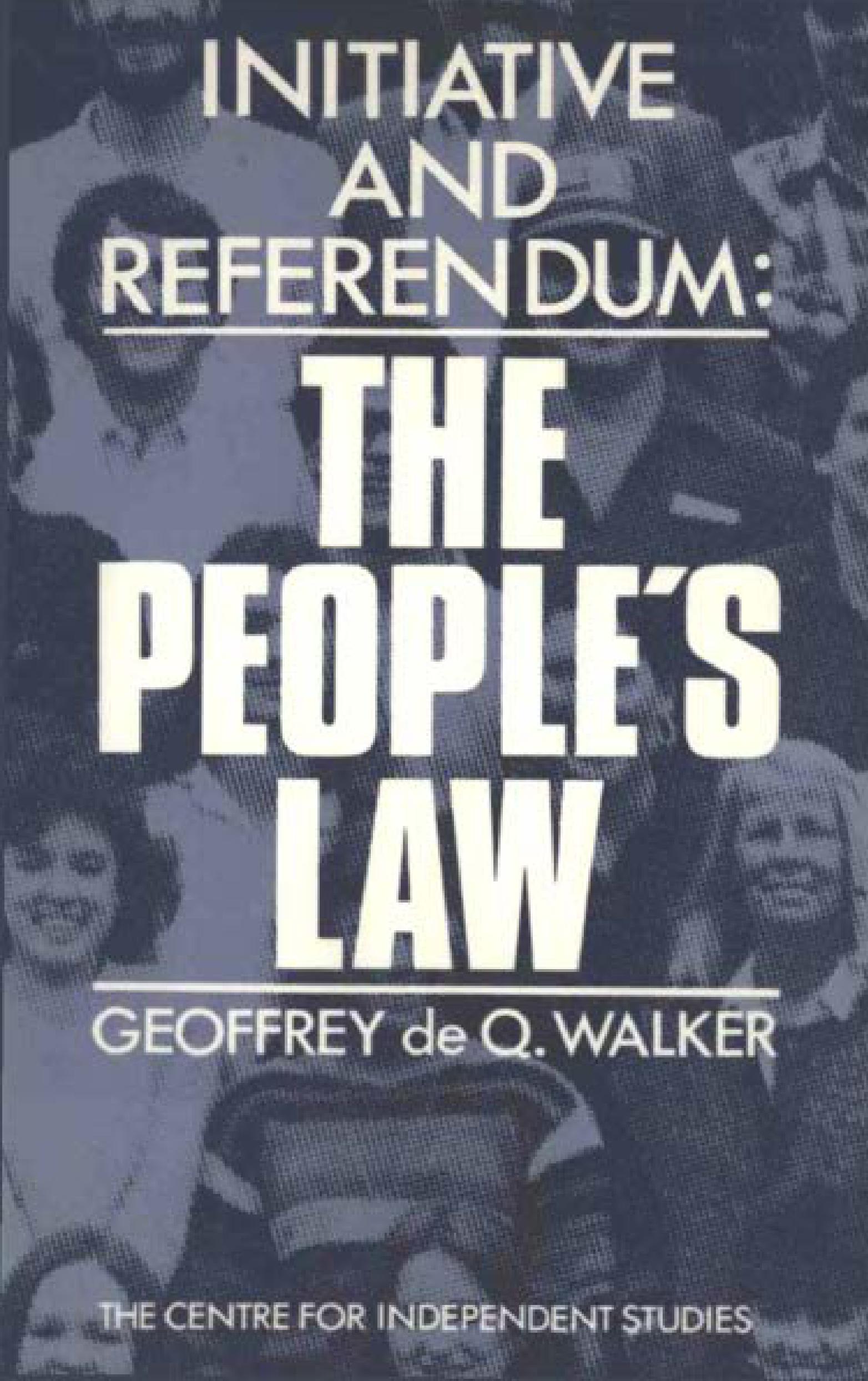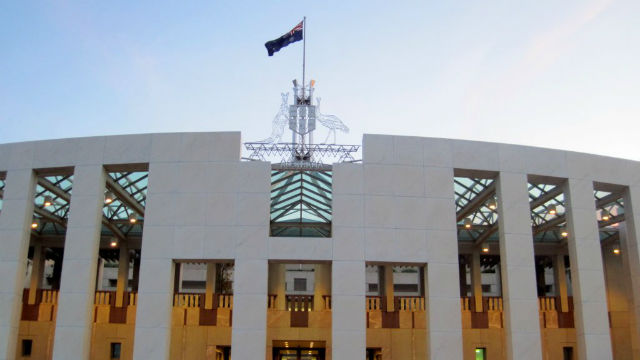
Australian experience of direct involvement in legislation has been limited almost entirely to referendums on the constitutional amendments which governments propose from time to time. In this book. Professor Walker recommends extending the procedure in two main ways: first, by making it possible for binding referendums to be held on ordinary legislation as well as on constitutional changes, and second, by introducing the “initiative”, which would give ordinary citizens the power to submit proposals to referendum (this power is at present the exclusive preserve of parliaments). In addition. Professor Walker considers using the procedure, in the form of the “recall” mechanism, as a popular check on ‘unelected officials in high places”, and in particular the judges on the High Court.
These proposals reflect a growing trend towards towards direct, popular law making in the Western democracies. Switzerland, Austria, Italy, Canada and the USA all make use of it in various forms. Even the UK , where the doctrine of parliamentary sovereignty is deeply entrenched, has in recent years resorted to it. True, the British referendums during the 1970s on membership of the European Community and on devolved government for Scotland and Wales were not strictly binding on Parliament. But many commentators believe that a convention has now been established whereby quasi-constitutional changes in Britain must be sanctioned by popular vote.
Professor Walker demonstrates that the trend is accelerating in Australia. In 1979 Senator Colin Mason tabled a petition signed by 10,000 voters calling for a constitutional amendment referendum on the citizen initiative. The proposal was discussed in 1985 by the Australian Constitutional Convention; it is also one of the most popular submissions to the Constitutional Commission, whose report is due to be submitted by mid-1988. Professor Walker is fully justified in claiming that “It seems likely … that the initiative and the referendum are destined in the near future to become the subject of lively debate in Australia”.
The case for extending the referendum procedure, however, requires to be clearly argued; and Professor Walker devotes a chapter to dealing with opposing arguments to it, such as the possibility of popular majorities using the power of direct legislation to violate the rights of minorities. He remains confident that this outcome is very unlikely, and certainly no more likely than it already is under our present system of representative democracy. In this context it is worth recalling that Australian voters had no hesitation about granting Aboriginals full constitutional rights when invited to do so in the 1967 referendum.
Indeed, it is the presence of the opposite problem — that of public opinion being frustrated by influential minorities — that more than anything else explains the growing interest in the initiative and the referendum. Professor Walker sees these procedures as a logical step in the development of liberal democracy, a development which has in recent years been attested by the theory and the practice of ‘democratic elitism’. In the 1950s and 1960s many political scientists, concerned with the
need to reconcile democracy with social stability and to avoid collapse into populist dictatorship of the kind that had occurred in Germany in the 1930s, welcomed the activism of elites of politicians and lobbyists, and sometimes even welcomed voter apathy and citizen passivity. More recently, public choice theory has demonstrated how this version of democracy leads to the capture of political processes by elites determined to promote their own interests and values, however unrepresentative and unpopular, resulting in oversized government, economic stagnation, and public services run in the interests of their employees.
Professor Walker argues convincingly that the extended referendum would be a useful weapon in the hands of politicians willing, but otherwise unable, to resist the demands of vested interests and promotional groups. He also notes that the influence of that procedure could not be measured solely in terms of the frequency with which it was employed, since the mere fact that it was available to be used would encourage political actors to behave with more respect for pubic opinion.
This lucidly written and admirably comprehensive study opposes the current drift of Australia’s constitutional practices towards ever greater centralisation and authoritarianism, and proposes a major step towards reviving the Constitution’s proper function as a guarantor of good government. If Professor Walker is right in believing that the initiative and the referendum will soon become the subject of a popular debate, his book deserves, and is likely, to become the standard work of reference onthe topic.










